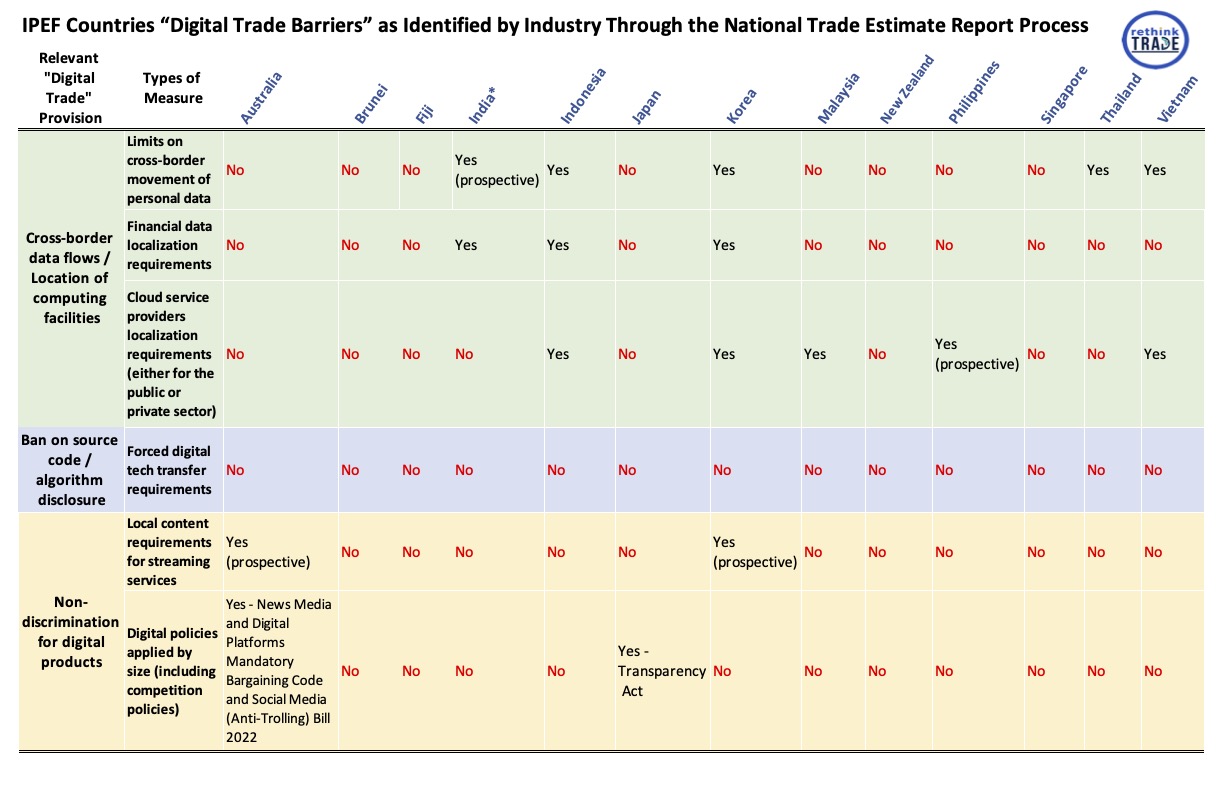
*India does not participate in the Pillar 1 negotiations covering the digital trade chapter.
Corporations have used the U.S. National Trade Estimate (NTE) report process to seek U.S. government action against other countries that adopt or even consider policies that affect industry interests, including legitimate public interest safeguards. Many firms are focused on the “Indo- Pacific” region because the administration is now negotiating “digital trade” rules with 13 countries for a possible Indo-Pacific Economic Framework (IPEF) that would cover 40% of the world economy. Interestingly, the 2023 NTE report does not list problems in IPEF countries with governments demanding access to source code. And, no policies are listed as “discriminatory” digital regulations, while almost none of the policies even described in the report could possibly be labelled as such. Yet rules to “address” these non-issues are Big Tech’s top priority for IPEF. This reveals the industry IPEF agenda is about stopping government oversight, not remedying actual trade barriers.
The Office of the United States Trade Representative (USTR) issues the statutorily required annual NTE report of what ostensibly are other countries’ “trade barriers.” USTR seeks private sector input and, then, industry interests submit detailed annual hit lists. The NTE has been used to attack numerous other countries’ policies as trade barriers. When the same policies are proposed in the United States, NTE reports often are weaponized against them. The 1988 Internet Tax Freedom Act added “barriers to United States electronic commerce” to the policies under the NTE’s purview, which opened the door for Big Tech interests to demand that U.S. officials elevate their private peeves about digital governance policies in other nations into official U.S. trade policy.
While it is generally ill-advised to have a government-sponsored corporate hit list used to attack policies abroad and domestically, NTE reports are a useful tool to identify industry trade priorities.
Today, corporate interests are demanding “digital trade” deals that would have the result of banning or limiting governments from reviewing source code and algorithmic information for racial discrimination, from protecting privacy and establishing data protection frameworks, and from enacting many forms of tech anti-monopoly policy. Yet the most recent NTE report shows that none of the IPEF participating countries have adopted – or even discussed – policies that would require government access to or transfer of source code or proprietary algorithms. The vast majority of IPEF countries do not seem interested in adopting measures that could even remotely be considered discriminatory for foreign digital products. And, only half of the prospective IPEF partners have limitations on data flows or storage and processing location requirements.
This table and map list the main provisions sought by the tech industry in IPEF digital trade rules, the domestic policies these IPEF terms are supposed to counter, and whether IPEF countries have adopted or considered such policies.

